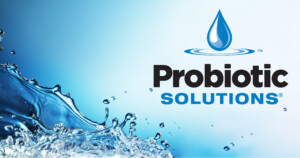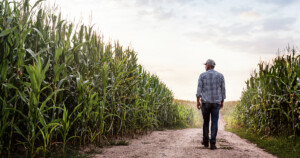
We did, and we started mapping out the campaign. Heather insisted that the podcasts be educational in nature, with an emphasis on “bridging the gap between water plant operators and engineers.” As an engineer, she knew that a great deal of education was needed to bridge that gap. We all agreed that, to be viable, we needed to produce at least one podcast a month. This was a lot to ask of the host and all her potential guests, bringing up Heather’s second question: “Do you think anyone will agree to talk with me?”
Last week we recorded our 18th Water Break podcast in 18 months, and this week the statistics report from Blubrry, our podcast hosting service, let us know that we had reached the milestone of 3,000 downloads. We realize that 3,000 isn’t a huge number when compared with more commercial podcasts, but for an educational podcast in the water and wastewater treatment niche, it’s a great accomplishment.
Something else that amazes us is the world-wide reach that podcasting can have. We knew that our largest audiences would be in the U.S. and Canada, but who would have thought that our third-largest audience would be in India, and our fourth and fifth in South Africa and Saudi Arabia. All told, we’ve had listeners from 57 countries, with some surprises such as Bangladesh and Northern Mariana Islands.
And so far, there have been 27 guests willing to voluntarily share their knowledge, experience, and lessons learned with the rest of the water-and-wastewater-treatment community through this podcast. They do it because they believe that water treatment is a calling, an opportunity to do something good for our local environments and our planet as a whole. But before you start thinking that these people and topics are TOO serious, you need only listen to a couple of the episodes to hear the joy and laughter that comes out. Who knew wastewater treatment could be so funny? (Apparently, anyone who has ever worked in a wastewater treatment plant!)
We take this opportunity to thank all those guests who have helped to provide over 3,000 hours of free education about water and wastewater processes and all those guests who will continue to share their knowledge through this podcast in the future.
Congratulations to everyone who has participated in helping The Water Break Podcast achieve 3,000 downloads!
To view and listen to the 18 podcast episodes, click here, or subscribe to The Water Break Podcast through your favorite podcasting service.
Related Posts

Anaerobic Digester Saves 42% In Sludge Hauling
by Heather Jennings, PE The case summary described below is an example of how our Bio Energizer® product helped reduce overall solids handling and improved supernatant clarity. It really doesn’t take much Bio Energizer® to reduce solids within your system when the microbial community is stimulated or “kicked into gear” to do their job. Typically,

Working with ARA: the Voice of Ag Retailers
By Lyndon SmithPresident and CEO,Bio Huma Netics, Inc. The Agricultural Retailers Association (ARA) celebrated its 30th anniversary at the 2022 ARA Conference and Expo last week. It made me reflect on our long-standing ties with ARA, and the opportunities it provides us to assist agricultural retailers (ag retailers) with their challenges. Our association with ARA

This Week in Ag #8
Farmers love to grow corn. Only twice in modern history has corn not held the title of the most-grown crop in the USA. That was in 2018 and (if you count it) 1983, when the government’s PIK program artificially swayed planting practices. Spurred by record fertilizer prices, many projected soybeans would overtake corn last year

